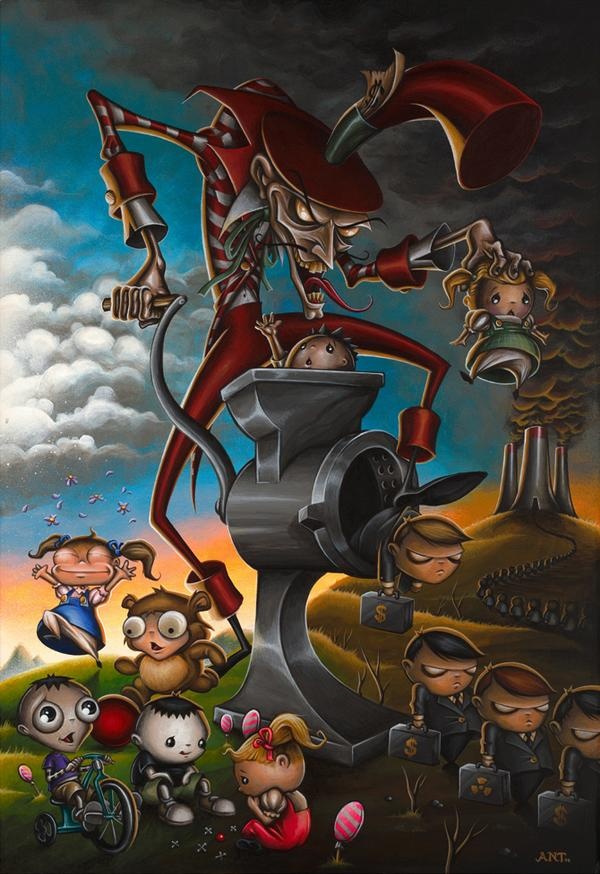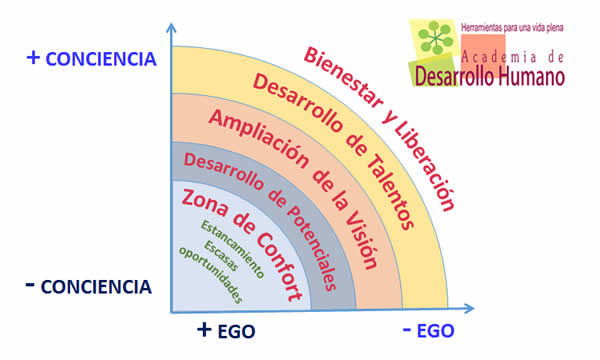De la Información al Conocimiento: Evita la Superficialidad y Profundiza tu Aprendizaje
La expresión “mal del siglo” se usó para designar la crisis radical de creencias y valores de la conciencia europea en el fin del siglo XIX: un sentimiento profundo de decadencia, cansancio y hastío en todas las esferas de la vida, por diversos fenómenos: grandes injusticias y complejidades sociales, el quebrantamiento del orden social por la desigualdad entre ricos y pobres, la decepción política, el individualismo indiferente, la impotencia para dar respuesta satisfactoria a las nuevas demandas de sentido. Actualmente, poseemos tendencias culturales similares que en el peor de los casos se sienten como desamparo o temor a ser manipulado. En cierta medida somos manipulados por la programación mental que hemos recibido a lo largo de la vida. Siempre tenemos la opción de un reseteo, de una reprogramación de los contenidos mentales y emocionales de nuestra mente.

La crisis de conciencia que se está viviendo es producto de una continua negatividad incrustada en nuestros pensamientos y emociones, un hábito reforzado con el paso de los tiempos y preservado por la sociedad y la cultura. No se trata de asumir una actitud al extremo positiva que pasa por alto lo negativo sino más bien de que una vez se identifica el error y la negatividad, en vez de quedarnos pensando en ella, pasamos a pensamientos y actitudes constructivos. La negatividad nos dificulta asumir adecuadamente las riendas de nuestra vida y puede llevar a que la persona se resguarde en zonas de confort o comodidad, perdiendo la oportunidad de superación y desarrollo de sus potencialidades. Mientras permanezcamos en estas zonas de confort, nos mantendremos albergando oculto en el fondo un disimulado sentimiento de frustración e impotencia. En realidad, todos contamos con la fuerza necesaria para cambiar estas circunstancias y actitudes adversas, solamente tenemos que aprender cómo activarla. El biólogo Humberto Maturana, señala que vivimos atrapados en un dolor constante, al albergar el sufrimiento en distintos aspectos de nuestro vivir, aunque somos expertos en disimularlo incluso ante nuestros propios ojos. [1]
También es parte del mal del siglo el hecho de que no se enseña en casi ningún ámbito cómo manejar la negatividad para que sirva de señalización de terrenos donde no debemos incursionar, tampoco se enseña a activar la fuerza constructiva. La educación tradicional sólo aborda parcialmente el desarrollo, atiborrando la memoria de información. Descuida la preparación del humano para vivir la vida desde todas sus dimensiones y solamente lo configura para desempeñarse de manera que encaje en el modelo de la sociedad y la cultura. El resultado, son seres humanos sin propósitos de vida claros, ahogados en sus mundos mentales y sus realidades personales, queriendo en el fondo superar todas estas limitaciones. Por eso es tan importante complementar la educación tradicional con la educación informal del Desarrollo Humano Integral.
Solemos interpretar la realidad de manera egocéntrica, sin darnos cuenta, al no aceptarla como es sino como nosotros la interpretamos o como queremos que sea; incluso llegamos a molestarnos o ser violentos cuando las cosas no suceden de acuerdo a nuestros pensamientos. De aquí la necesidad de desarrollar una visión más amplia que incluya otras perspectivas y maneras de ver las cosas. La realidad se presenta con múltiples facetas y una persona, dadas sus limitaciones naturales, no alcanza a verlas todas. Pueden surgir entonces sentimientos desproporcionados como el descontento, la ansiedad, la culpa, la depresión, el aburrimiento, la dependencia, el deseo de escapar de la inseguridad o de huir de la soledad. Estos sentimientos no se deben a una falla personal sino a las expectativas irrealistas de que una persona puede realizar una lectura 100% correcta de la realidad.
¿Vivimos una vida sin mucho sentido, sintiendo que vamos a morir sin haber vivido en realidad? [2]
La Cura del Mal del Siglo
Los programas de estudio de esta plataforma profundizan en la identificación de los aspectos que generan este mal y enfatiza los elementos que permiten su superación. Si aspiramos a construir bienestar, si queremos alcanzar mayores grados de satisfacción y realización desarrollando el potencial existente en todos, si deseamos ser competentes y productivos, amorosos con nosotros mismos y con los demás, necesitamos establecernos en la senda del desarrollo humano integral continuo. Esto podría representarse de la siguiente forma.

Los principios de libertad de conciencia y libertad de pensamiento, consagrados en el Artículo 18 de la Declaración Universal de los Derechos Humanos, aceptada y proclamada por la Asamblea General de las Naciones Unidas en 1948, independiente de la cultura o el credo al que pertenezcamos, nos invitan a llevar una vida donde podamos ser auténticos no copias. Permitamos que nuestros tesoros internos afloren, evitando que la programación cultural recibida impida vernos tal y como somos. Esta programación se manifiesta automáticamente en nuestro comportamiento y expresiones, como un rasgo repetitivo de nuestra personalidad, el cual queremos modificar.
El ser humano se acerca a la libertad cuando reconoce la realidad contextual en que vive y aprende a aceptar lo que no puede cambiar. Lo que sí puede hacer es dejar de actuar como un robot del mundo, superando las limitaciones impuestas a su crecimiento. También puede aprender a tener una visión realista y objetiva que posibilite el desarrollo de su potencial pleno, su propio bienestar y el de su familia y su comunidad.
______
1 Matriz Biológica de la Existencia Humana. Biología del Conocer y Biología del Amar. Humberto Maturana. Instituto de Formación Matríztica, Santiago de Chile, 2005
2 Los referentes de mal del siglo, incluyen investigaciones presentadas por Sigmund Freud, Carl Jung, Sheldon B. Kopp y Erich Fromm, entre otros. Para profundizar sobre el mal del siglo y sus formas de superación, puede consultarse en la bibliografía estos autores.